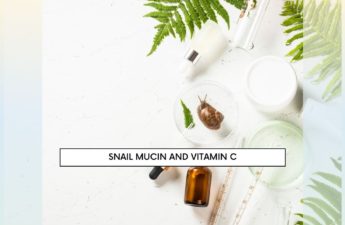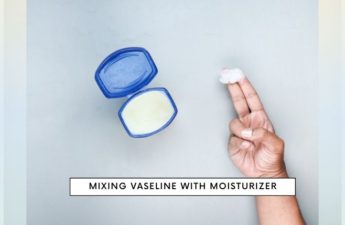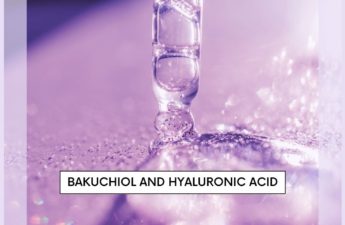Our skin protects us from UV rays, microorganism, and regulate our body temperature. A healthy skin barrier regulates skin moisture by trapping water molecules and prevent skin’s dehydration. In other aspects, any slight irritation may lead to disordered skin, redness, itching, and rash when your skin barrier is compromised. Our face is the most common site of skin sensitivity due to the number of products used on the face, thinner barrier and the maximum number of nerve endings.
Signs of a damaged skin barrier
Sensitive skin and sensitized skin are very similar except sensitive skin is genetic that passes down from families. In short, you’re born with it.
Both skin conditions have very similar symptoms. Some common signs are redness, itching, burning and uneven textures. Watch out if your skin starts showing symptoms as below.
- redness and itchiness
- your daily skincare products suddenly irritate your skin
- dry and dull skin
- pimples and whiteheads
- your skincare product won’t absorb into your skin
If you found your skin is having these traits, unfortunately, your skin barrier might be damaged. First of all, you will notice your skin becomes very dry and flaky inside but appears to be oily and greasy on the surface.
Every skincare products that you apply on your skin won’t absorb into your skin like before. Your damaged skin barrier is working the opposite way, which is transporting what’s inside out and letting in what’s outside in.
As a result, your skin is not locking the hydration and moisture in your skin. Irritants and allergens penetrate into your skin easily. When irritants and allergens penetrate into your skin, it might trigger inflammations causing your skin to itchiness and redness. You might also feel a burning sensation.
One of the earliest signs is your skin reacting to your everyday skincare products. It’s a big red flag when your daily skincare products irritate you out of a sudden. This is considered as one of the first indications of your skin barrier is weakening. Your skin barrier becomes sensitized and easily triggered by chemicals in the product. For instance, fragrance and alcohol.
If your skin is experiencing redness, burning sensation, itchiness, try to switch to a more simple and gentle skincare routine. Treat your skin like a baby by focusing on the very basic skincare routine, such as hydration. Eliminate whitening, brightening, or products with fragrance, basically, any products that might irritate your skin.
View this post on Instagram
How long it takes to repair your skin barrier?
- slight damage skin barrier : 2 weeks – 4 weeks
- moderate damage skin barrier : 3 months – 6 months
- severely damage skin barrier : unknown
Your skin barrier is the first line of defense for your skin, protecting it from external aggressors like pollution, UV rays, and harsh weather conditions. However, when the skin barrier is damaged, it can cause a myriad of problems. The time it takes to repair a damaged skin barrier depends on the severity of the damage.
The lipid barrier requires a certain time to heal. For a slight skin barrier damage, it will take about 2-4 weeks to repair. Signs of slight skin barrier damage are dryness, tightness, flakiness, tingling sensation even when using hydrating/moisturizing product that does not contain potential irritants. Most people do not realize or are aware these are the early signs of a damaged skin barrier.
For moderate damage, it will require 3 months – 6 months to repair if you are using the right method. Signs of moderate skin damage include oily but dehydrated skin, sensitivity, burning sensation, rough texture on the face. The signs are clear to see and feel and it is when most people started to realize their skin problems.
If your skin barrier is severely damaged, it will take a really long time for it to repair itself. After your skin barrier has been repaired, you still have to take gentle care of it to prevent it from damaging again.
The healing process varies on different skin types as well. It takes a longer time to heal your skin barrier when you have dry and mature skin. On the other hand, combination skin or oily skin types have a better self-healing ability.
Last but not least, the duration to heal a damaged skin barrier can be different depending on the situation but it certainly can be healed with proper treatment.
Ingredients that help strengthen and repair your skin barrier
- Ceramide
- Calendula
- EGF
- Hyaluronic acid
- Bifida Ferment Lysate
Ceramide
Ceramide helps to replenish your natural lipid and strengthen your skin barrier. It is found naturally in your skin that holds your skin cells together by forming a moisture layer, so your skin appears plump and healthy. Ceramide also helps to fix the damaged moisture barrier to protect skin from infections and keep hydrations from evaporating from your skin.
Calendula
Calendula has been used as an herbal medicine for calming the stomach, nowadays it can also be found in skincare products because of its potent anti-inflammatory power. You often have to deal with redness, itching, burning sensation when your skin barrier is weak. Calendula comes in handy if you need something to soothe and calm your skin. It works well on calming eczema, acne, razor burn, and even sunburn.
EGF
EGF or Epidermal Growth Factor is a Nobel-prize winning ingredient. American biochemist – Stanley Cohen discovered the ingredient during studies of nerve growth factor as a side effect of other experiments. EGF helps with wound healing and strengthens your skin barrier by stimulating the growth of new skin cells. Moreover, EGF also prevents signs of aging, hydration and wrinkle improvement. To sum up, this is a powerful ingredient for strengthening your skin barrier.
Hyaluronic Acid
Hyaluronic acid is a powerful moisture-binding ingredient that keeps skin looks supple and plump. It can hold up to 1000 times its weight in water like a soaked sponge. It is safe for sensitive skin even for people who had done their chemical peel procedures.
Bifida Ferment Lysate
Bifida Ferment Lysate is a key ingredient in many skincare products, known for its ability to help repair and strengthen the skin barrier. This powerful ingredient is derived from the fermentation of Bifida, a type of bacteria found in the gut that has been shown to have numerous health benefits. When applied to the skin, Bifida Ferment Lysate helps to promote the growth of healthy skin cells, while also protecting against environmental stressors that can damage the skin barrier. By repairing and strengthening the skin barrier, this ingredient can help to prevent moisture loss, reduce inflammation, and improve overall skin health.

Tips for healing skin barrier
-
no makeup rules
Allow your skin to take a break from all cosmetics for at least two weeks of time. You can reintroduce and use one at a time when you feel your skin feels better. The perk of reintroducing and use one cosmetic product at a time is you get to reaccess which product is sensitized your skin. Start using your sunscreen once your skin feels stabilized. UV rays damage your skin cells, it’s one of the main reasons your skin age even caused skin cancer.
-
use a gentle face cleanser
Stop using that cleanser that gives you a squeaky clean feeling. The foamy cleanser will not only wash away the dirt and excess sebum from your face, but it also strips off the natural moisture on your skin. Get a low PH level (ideally 4.5-6.5 PH level) cleanser and wash your face once or twice daily and you will feel the difference in no time.
-
hydration hydration hydration
Provide ample hydration to your skin. Do use a moisturizer with simple ingredients to prevent irritation to your skin. Your skin barrier is weak hence it does not protect against irritants and microbes that penetrate into your skin. Moisturizers with simple ingredients provide hydration also improve and stabilize your skin.
-
supplement for your skin
You really are what you eat. Your body health reflects on your skin condition. Eat Omega-rich foods such as walnut, fish oil, and chia seeds. Omega-rich foods help produce collagen and keep the skin healthy and strong. Cutting down sugar and dairy intake will help your skin tremendously. Sugar breaks down collagen and damages the intestinal lining. Sugar flourishes bad bacteria and crowds out good bacteria. An overgrowth of bad bacteria-caused acne and skin rash. On the other hand, dairy products increase the production of sebum. It may also aggravate inflammatory skin such as acne and eczema.
Do you have a damaged skin barrier? Share with us, we’d love to hear about it. If you have any questions and tips that you’d like to share with us, just drop your comment down below.


